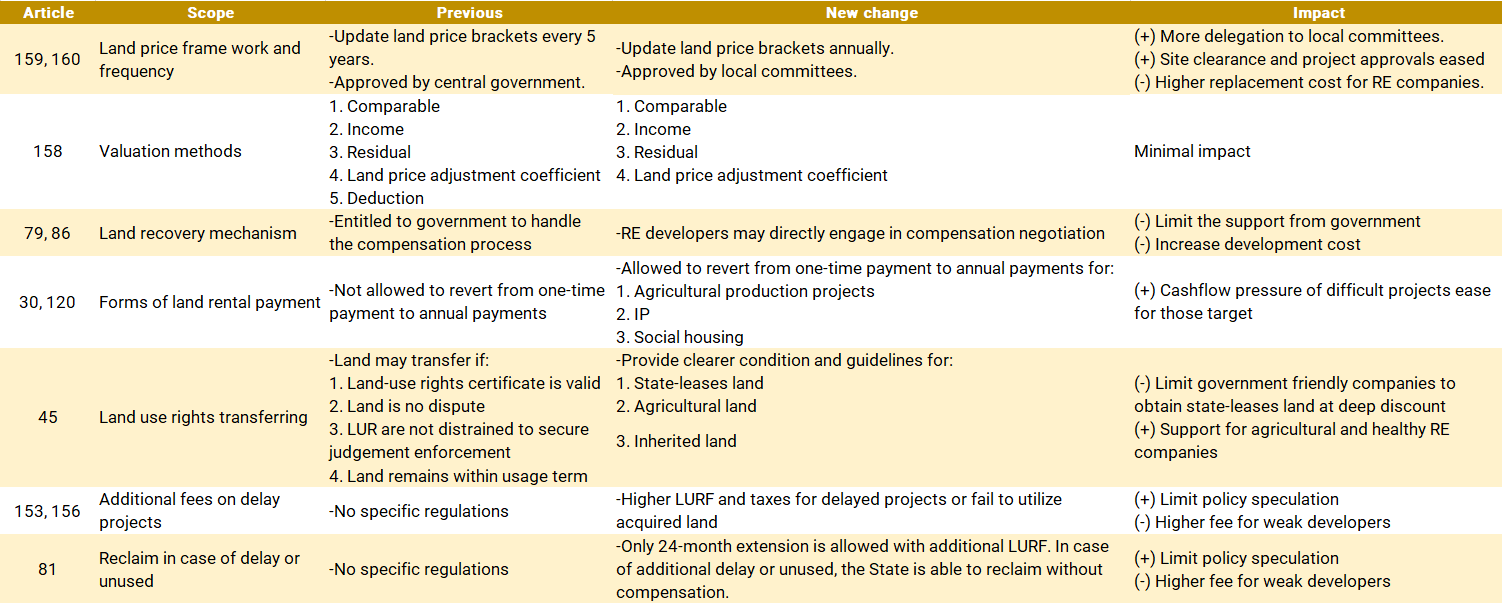REAL ESTATE – A GLANCE AT POLICY CHANGES
The key changes in Vietnamese real estate policy include the Amended Land Law, the Law on Housing, and the Law on Real Estate Business, which came into effect on August 1, 2024.
In our view, the new policy poses short-term challenges for the residential real estate sector in adapting to the changes, while offering slight advantages for industrial parks. However, in the long term, these laws will enhance transparency, support the healthy growth of the property market, and drive infrastructure development.

The Land law
PHFM present key changes in the Amended Land Law 2024 and the potential impact in the table below. In summary, most significant points are higher replacement cost and limitation on developers’ access to land.

The Law on Real Estate Business
The Amended Law on Real Estate Business offers more protection for homebuyers but dampens on developers’ cashflow as limitation on presale and arm-length transaction.
In previous years, we observed an aggressive practice of collecting substantial deposits for off-the-plan properties. Some developers, even without the required approvals to commercialize, still launched projects and received payments up to 99% of the property value. While many of these transactions were legally framed as “deposit contracts” or “business cooperation contracts”, they were essentially presale in practice.

The Law on Housing
The Amended Law on Housing offers the alternatives for residential developers to fulfil their social housing obligations.

Conclusion
In summary, Vietnam’s real estate market in 2024 has seen legislative advancements – the approvals on Land Law, Law on Real Estate Business, and Law on Housing. However, the new policies have varying impacts across different market segments, specifically:
- Residential RE: faces an overall negative impact due to the combined effects of restrictive policies and cash flow limitations, despite some benefits from improved delegation.
- Industrial Park: experiences an overall positive impact, driven by effective policies and strong financial stability.

PHFM
